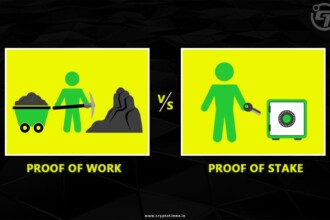Blockchain technology is at the forefront of significant innovations that have existed since the past decade. The role of this new-age technology has been noteworthy as the world is gradually heading into a digital revolution.
The adoption of blockchain technology is currently a hot topic in the tech, finance, and commercial sectors. While several applications have proved that blockchain could be a great fit for industrial needs, it has also been the subject of a debate where its drawbacks dominate over its exceptional capabilities.
Blockchain’s use cases in different areas, such as cryptocurrency, tokenization, and decentralized data-storage facilities, have become a mass success. However, it is still not considered capable enough to handle the duties or standards the business industry requires.
Blockchain for Businesses
At first glance, it may seem that blockchain is merely a distributed database, so what else value it could provide to day-to-day business operations? The answer is the scope of applications that are built on top of it.
Blockchain provides a solid infrastructure layer that could be used to develop a wide range of applications focusing on business automation, data management and verification, payments, etc. Its functionalities, such as smart contracts and secured transactions, enable foolproof execution of record processing and storing on digital databases.
How Blockchain Can Benefit Businesses
More than decade-old Blockchain technology has abundant benefits for businesses from different streams. Some of its key benefits are below.
- Automation: The functionality of smart contracts enables automation with data being stored and managed on the blockchain. Businesses can benefit from automating tasks and operations using these smart contracts.
- Record-Keeping: One of the most beneficial aspects of blockchain is record-keeping. The assured data safety and security features of blockchain make it an ideal solution for storing data and records.
- Tracing & Tracking: Blockchain enables tracking and tracing of several business variables such as shipping, services, finance, etc., which all improve decision-making and overall business performance.
- Transparency: Businesses can benefit from the ultimate transparency feature offered by blockchain. Anyone can access the data available on blockchain from all around the world. This feature enables such a business ecosystem that is open, transparent, and easily accessible.
However, despite the blockchain offering elevated features and functionalities, it remains complex in fundamentals, essentially preventing its adaptability in the business sector. These drawbacks raise concerns about whether blockchain technology is suitable and ready to serve the business economy.
Limitations of Blockchain
As blockchain technology is still in its infancy, it poses some limitations expected to be addressed by 3rd generation blockchains.
- Scalability Issue: Scalability is a major issue for blockchain networks. The core functionalities and development of blockchain can not be altered; hence, it faces issues when the network goes through increased demand. Such issues cause congestion in blockchain and damage its performance.
- Irreversible Transactions: Blockchain transactions are immutable and irreversible. Once a transaction is executed, all its data is permanently stored on blockchains. This data can not be altered or replaced under any circumstances.
- Inefficiency: Blockchains are inefficient when it comes to real-world impacts. As a blockchain is continually on, its electricity needs are much higher. The data and transaction verification process requires a lot of computational power, which leads to increased power consumption.
While all these drawbacks put blockchain under condition, there are also challenges in the way of blockchain adoption for business applications.
Challenges of Blockchain Technology in Business Adoption
Some obstacles hinder businesses from integrating blockchain technology with their business model and products.
- Implementation Cost: The implementation of blockchain comes with an expense, which includes development and maintenance costs. It also requires a separate team or even a whole department for business corporations to look after its deployment.
- Lack of Familiarity and Standardization: Blockchain still has not reached enough people as it is quite a new technology. The majority of businesses are unaware of blockchain’s potential and the advantages it could offer. Moreover, blockchain has not yet been standardized as a primary solution for such business applications.
- Non-compatibility with Existing Systems: The existing development methods and systems often conflict with blockchain’s tools and technology, which hardly coordinate. The blend of new and old solutions might require more resources while producing slightly different outputs.
The drawbacks above and the challenges of blockchain might prevent it from being spread out, but the technology is currently in a pre-phase and not in a final issuance. In addition, the blockchain space is also going through major changes for its applicability with customizations and innovations.
Boosting Blockchain Adoption in Business Landscape
The scope areas can be focused on boosting blockchain adoption for business applications.
1. Developments
Blockchain must go through major developments to fit the ‘new-age business solution narrative.’ The customized functions and methods can be developed to meet the criteria for business orientations.
2. Education
Providing education for blockchain will bring more familiarity to this technology and eventually push it toward widespread adoption. It could magnify blockchain usability for specified needs and business requirements.
3. Resources
More resources that highlight blockchain’s scope and applicability in business administrations need to be made available. The availability of materials could drive corporations to explore blockchain practices that help in levelling up operations.
Blockchain holds greater potential for business and corporate industry. In this field, developments are continually taking place to make blockchain adaptable across the business and commercial landscape. Enterprise blockchains are one of these developments being introduced natively to address business requirements.
4. Enterprise Blockchains
Enterprise blockchain enables business organizations to streamline operations with customized data recording and transferring solutions built using distributed ledger technology (DLT). These types of blockchains are usually permissioned or private in nature as they aim to address specific business needs rather than performing all tasks that a typical blockchain does.
By leveraging novel characteristics of blockchain technology, such as immutability and transparency, an enterprise blockchain helps business corporations in a variety of aspects ranging from simple record keeping to large-scale production management.
Several tech giants like IBM, Facebook, Mastercard, etc., are actively exploring this kind of blockchain-tailored solutions for optimizing their existing operations.
Conclusion:
Blockchain is currently widely utilized in the cryptocurrency and decentralized finance sector, but its use is not limited to it. Initially, it only served Bitcoin transactions, while currently, the technology behind it is used broadly. The current applications of blockchain are dominating in finance, supply chain, media, banking and several other sectors.
Before it takes over the business space, blockchain adoption will face many hurdles along the way. In the coming time, this ‘innovation of the decade’ will surely lead the business, corporate and commercial landscape.
FAQs
Q1. What is the Lack of Adoption of Blockchain?
Ans: The adoption of blockchain can be described as usability of blockchain technology in various sectors.
Q2. What Could be a Key Challenge for Blockchain Adoption?
Ans: Scalability and lack of standardization could be key challenges for blockchain adoption. Blockchain needs to be understood by the industry for large-scale adoption.
Q3. Why is Blockchain Adoption Slow?
Ans: Despite being a decade old, blockchain is quite a new technology and it is going through the initial phase of adoption.
Keep Reading:







